University Healthcare Essay: Comorbidity and Mental Health
VerifiedAdded on 2022/09/28
|8
|1079
|19
Essay
AI Summary
This essay investigates the significant impact of comorbidity, the co-occurrence of mental and physical illnesses, on the overall health outcomes of individuals with mental health challenges. It begins by establishing that the life expectancy of people with serious mental illnesses is often shorter than that of the general population, and highlights the disproportionate prevalence of medical comorbidities such as respiratory conditions, cancer, heart disease, and metabolic disorders like diabetes and obesity. The essay explores the reasons behind this, including the effects of certain medications, such as atypical antipsychotics, which can increase the risk of metabolic complications. It further discusses various practices and approaches to address these challenges, emphasizing the need for person-centered care and integrated healthcare models. The essay references several studies and research, including collaborative care models and WHO recommendations, to support the argument for improved healthcare delivery systems and better recognition of health inequalities for mentally challenged individuals. The conclusion reiterates the importance of integrated care, psychological treatments, and structured management approaches to effectively address the risk factors associated with physical illnesses comorbid with severe mental illness.
1 out of 8


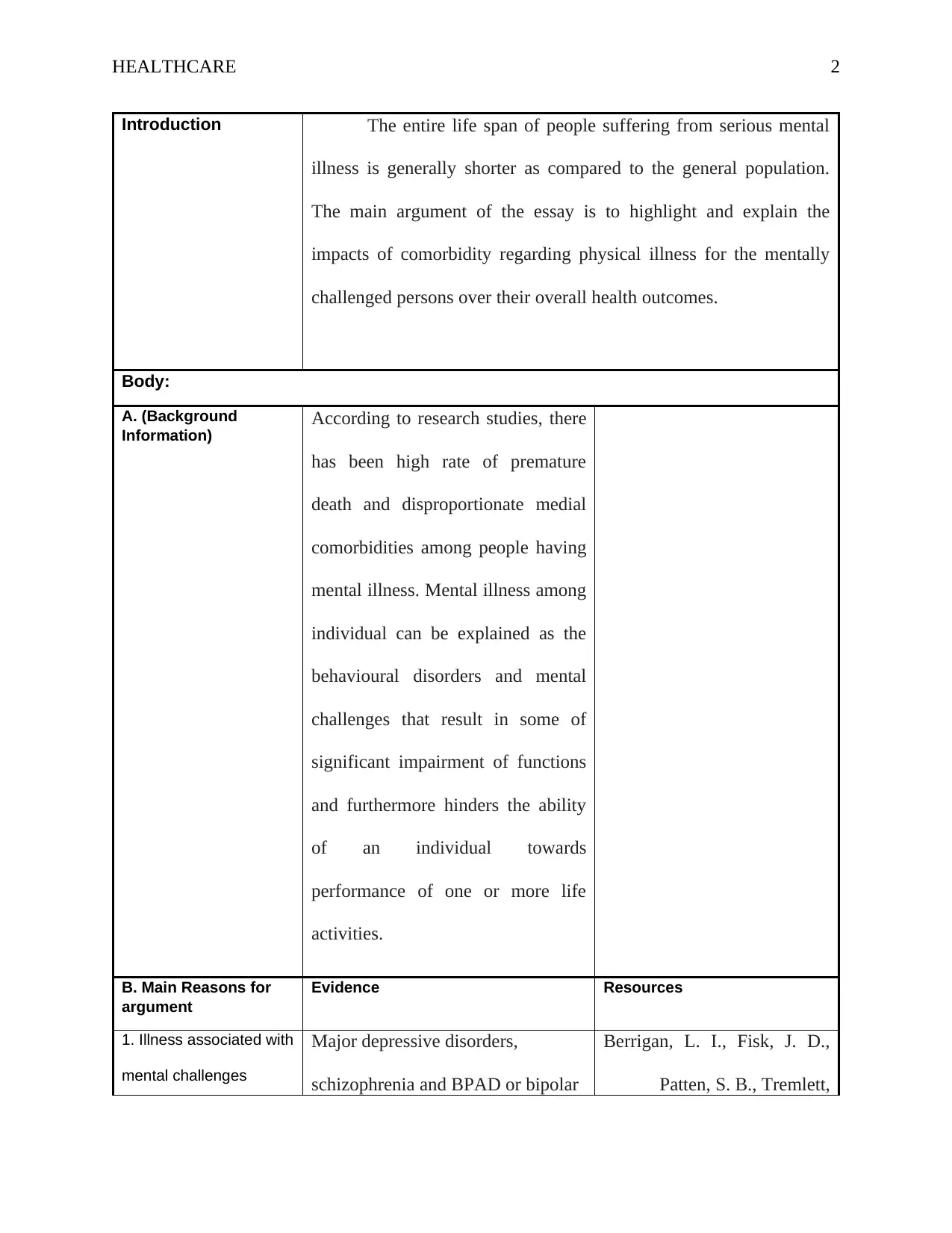

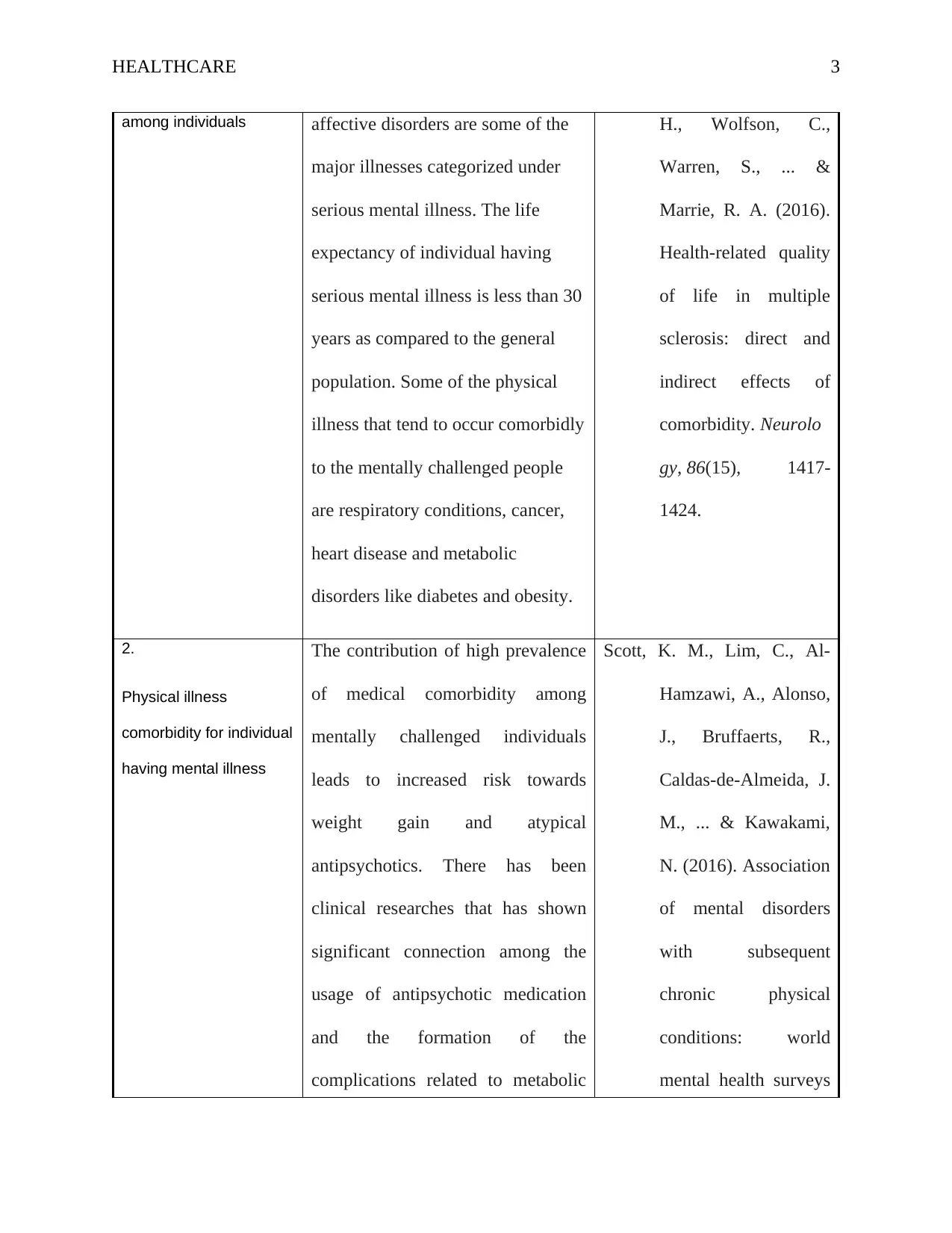
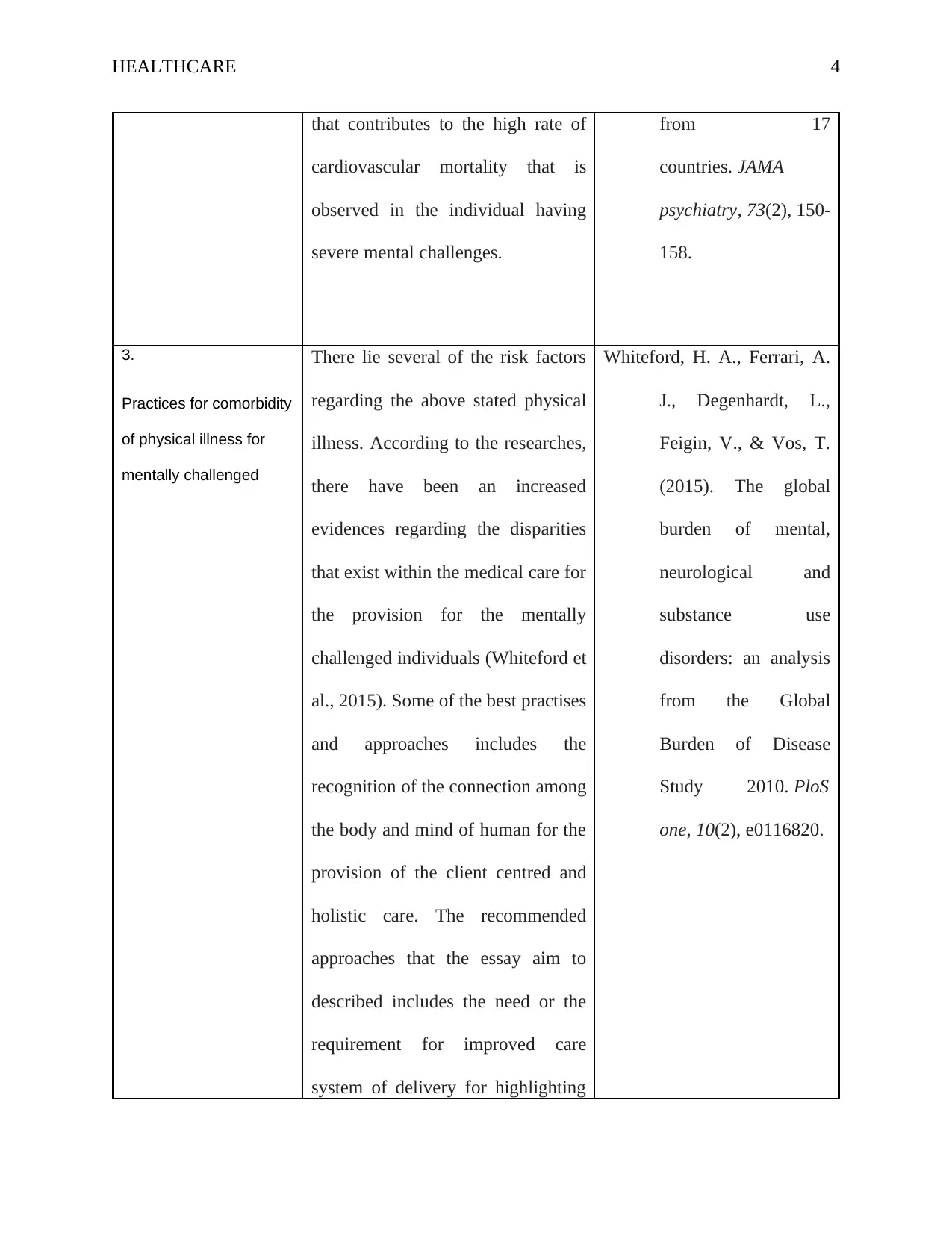
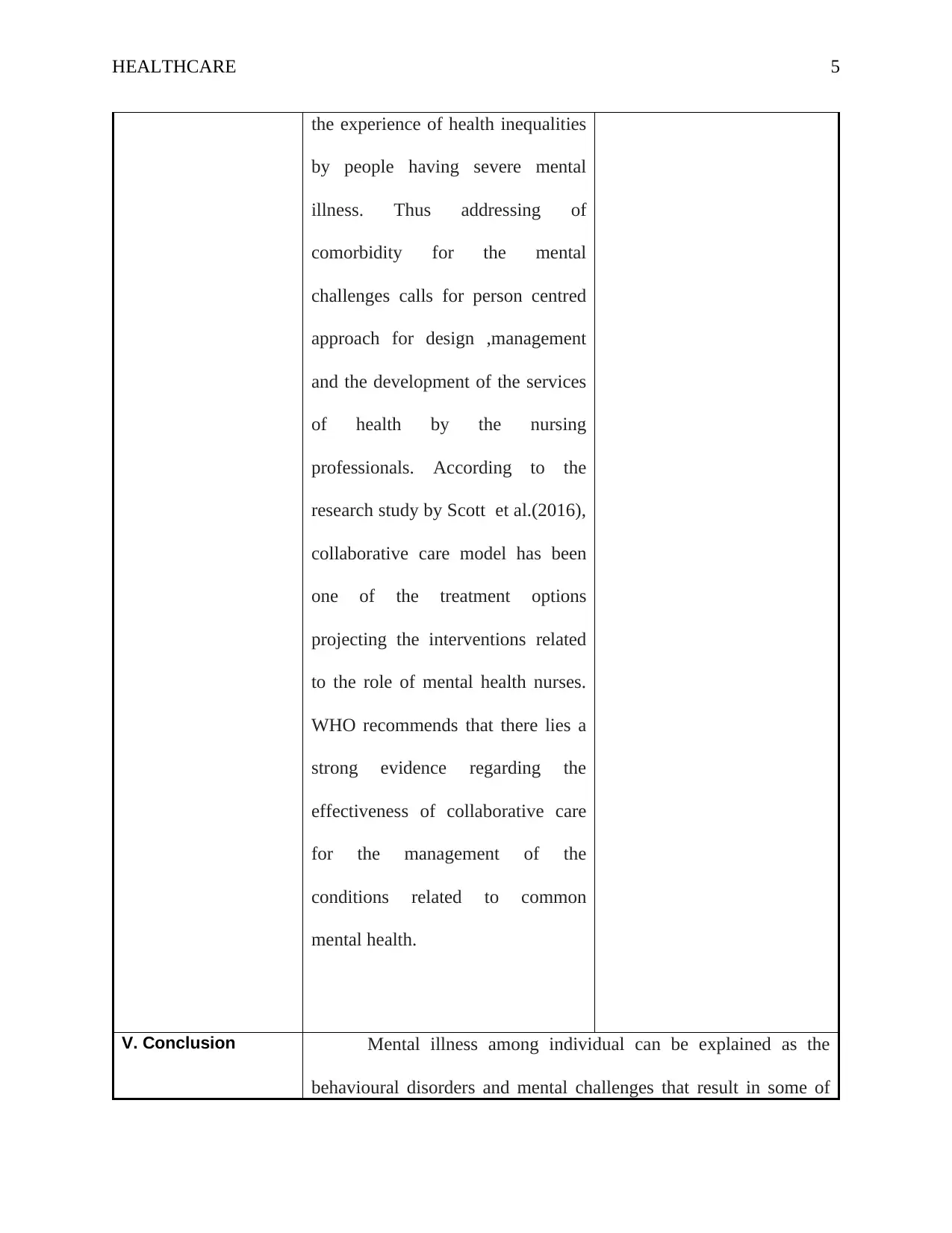
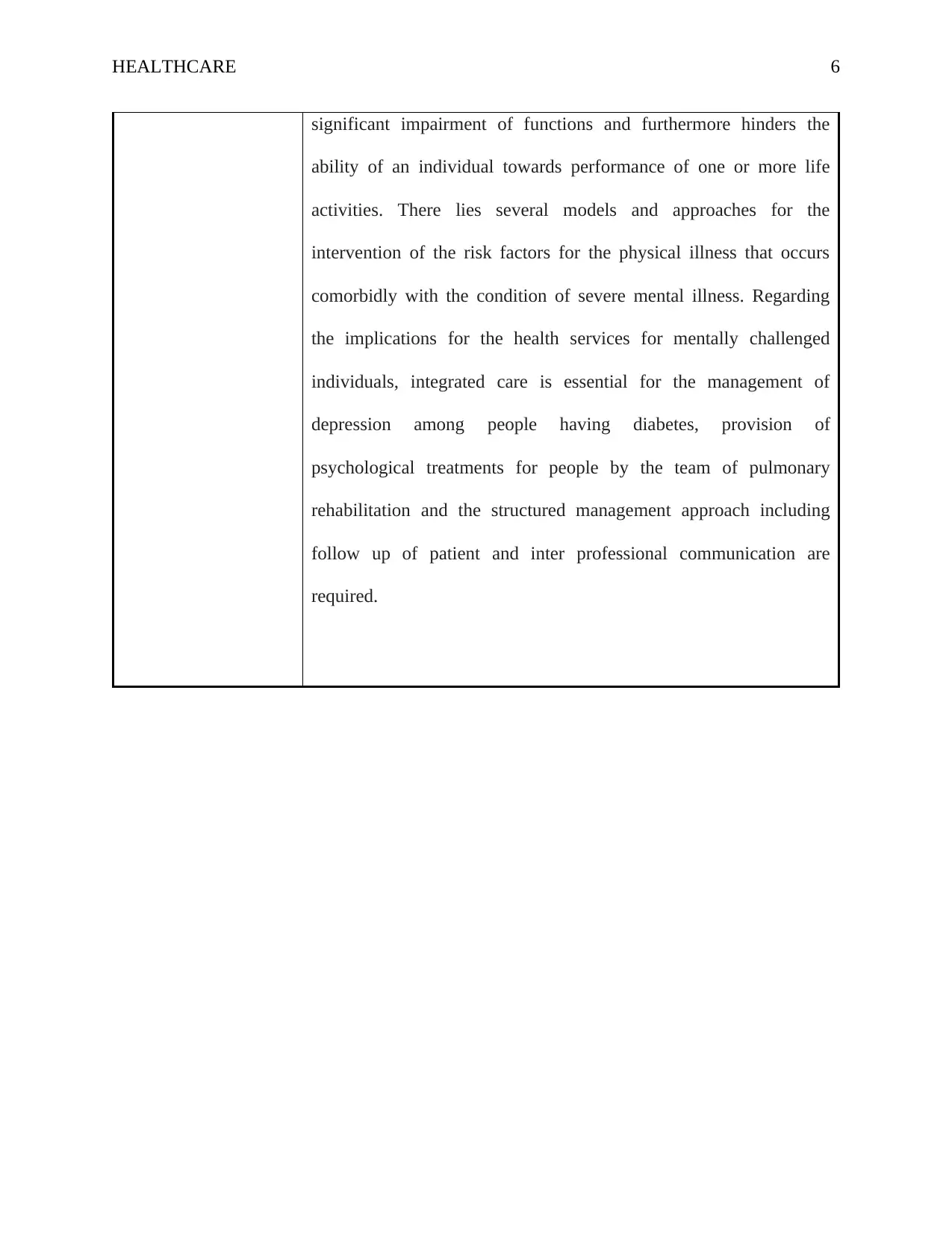
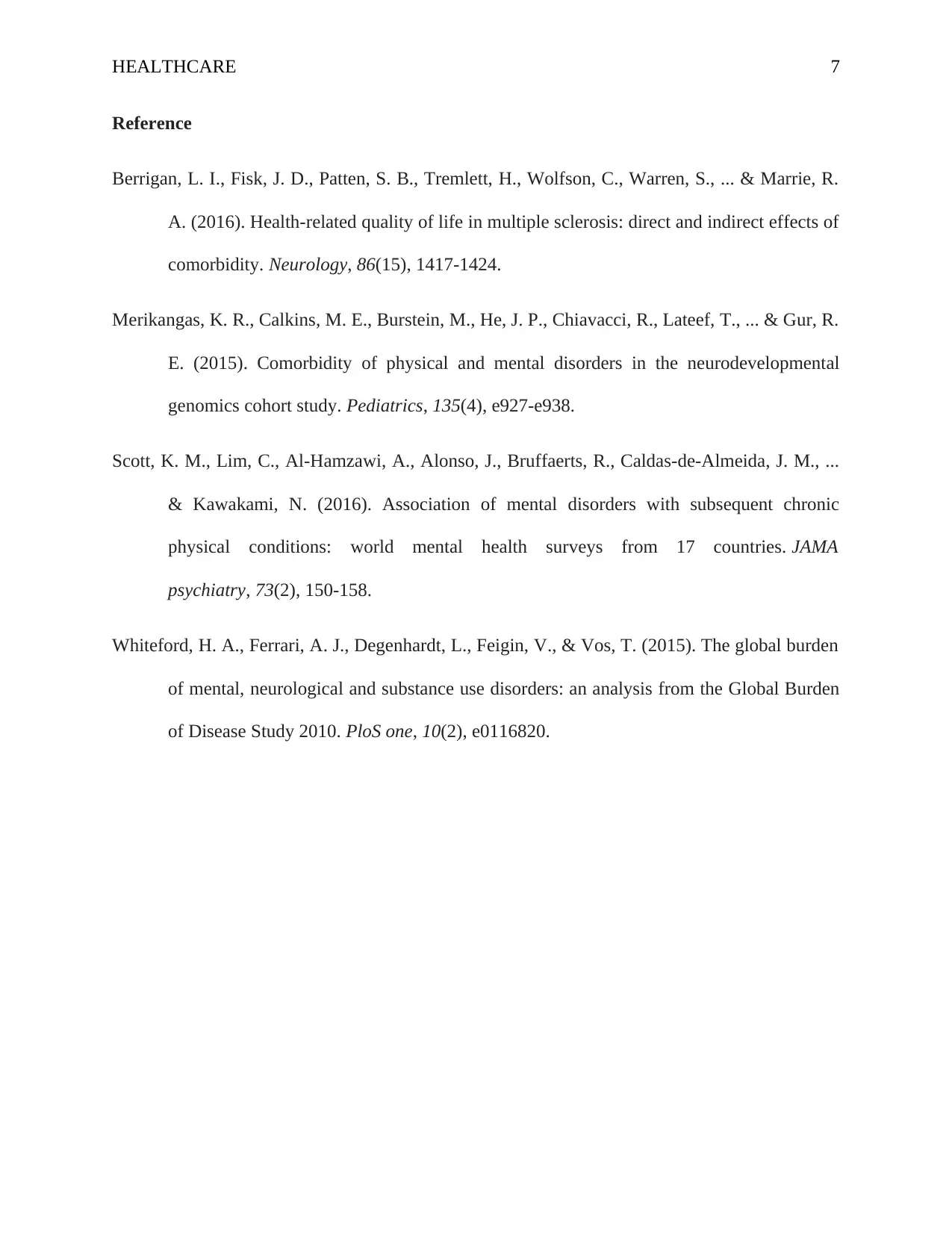






![[object Object]](/_next/static/media/star-bottom.7253800d.svg)